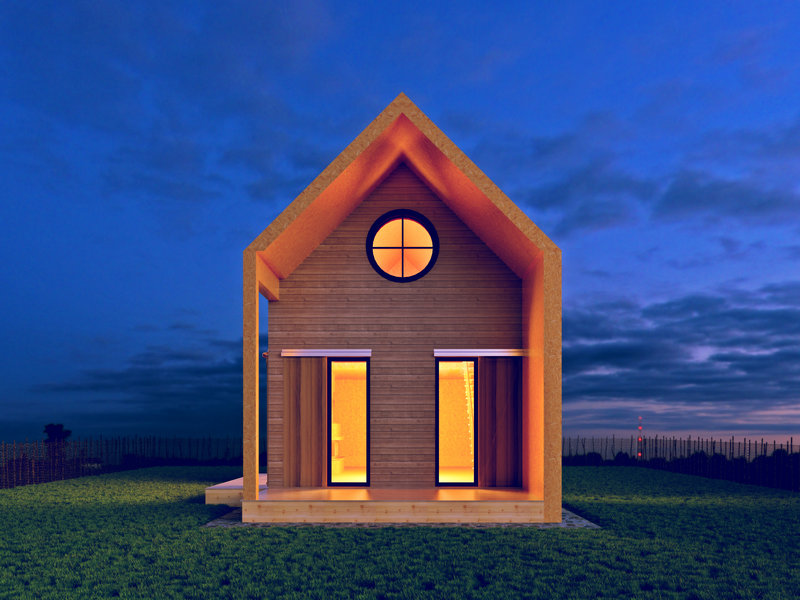You may have heard of the Tiny House Movement. It’s getting trendier and trendier to build and live in small houses. Doing so is known as “tiny living” and is very economical. And it’s no wonder why so many people are turning to tiny living in today’s economic climate. Building a smaller house saves money on building materials like lumber and windows, while also decreasing your electricity bill. Not only that, but you also leave a smaller environmental footprint. If you are thinking about building a tiny house in Maryland, you can get all the materials you need from Leland Fisher Lumber.
Financial Freedom
The main reason people build tiny houses is to avoid the financial responsibility of a big mortgage. The average cost to build a regular-sized house is $272,000, plus $209,000 in interest for a 4.25% 30-year loan, bringing that up to a whopping total of $481,704! Compare that to the average $23,000 required to build a tiny home. No wonder so many debt-burdened millennials are driving the tiny house movement! Some people take pleasure in designing and building their own tiny houses, which saves even further on design plans and labor costs. People who like to travel build tiny houses on wheels as an alternative to buying a large RV. If you plan it right, building a tiny house can save you a lot on materials cost.
Environmental Impact
After you move in to your inexpensive tiny home, you immediately start saving money on heating and cooling costs. A smaller space means less energy needs to be used, which saves a lot on energy bills. Some people choose to install solar panels on their tiny homes as a further way of saving money and having less of an environmental impact. Having solar panels means that they are off the grid and don’t have any electricity bills to pay! With such a small space, it’s easy to power everything you need with solar panels. You can also install large windows in your tiny home to allow more natural sunlight inside your home to warm it. Finally, a tiny home saves money by just not having enough space for you to fill it with things. This means you buy and consume less, including less food. If your kitchen is not big enough to store much food, then there’s less of a chance of food going bad and being wasted. It may be difficult to manage living in a tiny home, but it sure will decrease your carbon footprint!
Fisher Lumber and Hardware
Since 1894, Fisher Lumber and Hardware has been serving homeowners and professional contractors in the Maryland, Washington D.C., and Northern Virginia areas with top quality lumber, building materials, tools, and accessories. Operating under the same ownership since 1947, our business has been built on our reputation with our customers. Get in touch with us today by calling 301-424-6500 or by visiting our website. Stay in touch via Facebook, Pinterest, Twitter, and Google+ too!

